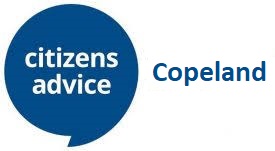Money Confidence
Select advice topic

These are some of the common terms we talk about when discussing finances.
APR
This stands for Annual Percentage rate. This tells you the cost of a loan, taking into account the interest you pay, any other charges, and when the payments are due. You can use the APR to compare the cost of one loan with another. For example, a loan with 20% APR is more expensive than one with 15% APR.
AER (Annual Equivalent Rate)
This is the type of interest you receive in your savings accounts. It’s calculated based on the interest, bonuses and charges on your savings account over 12 months. For example, If you opened a savings account and put in £100 at the beginning of the year, and the AER was 10%, at the end of the year you would have £110 in the account (assuming you didn’t withdraw any money or put any more money in). If the AER was 1%, you would only have £101 at the end of the year. All banks use the same calculations for their AER so you can use it to compare savings accounts.
Arrears
This is the amount of money that is still owed and has not been paid when it was due. For example if you have a monthly payment on a loan of £50 and you miss a payment one month, your account will be £50 in arrears.
Assets
Assets are items you own that can provide future benefit to you or your business, like cash, property, or even office equipment.
Compound interest
Compound interest is important in understanding how interest works on your savings and loans. The principle is that when you save money, as well as earning interest on the savings, you also earn interest on the interest itself. Therefore, every year that you keep your money in your account, you are earning interest on each previous year’s interest. This means the longer you keep money in your account the faster the money will grow.
Example — If you saved £1000 in your account and the AER was 10%, at the end of the first year you would have earned £100 in interest, £1100 in total. The following year you would earn £110 in interest (10% of the original capital) and 10% of the year one interest (10% of £100). The next year would be £121 and so on and so forth. This is what is referred to as compounding.

Credit
If your account is in credit, it means that you have money available to spend. If you buy goods or services on credit, it means that someone like a bank or other lender has given you the money to buy something now. This is with the understanding that you’ll pay it back later, usually in instalments, with something called interest on top and could include other fees and charges.
Credit Report
A credit report is a record of your financial history including how well you make payments, such as bills and rent, and manage credit such as loans and credit cards. Financial organisations, such as banks and credit companies, energy and broadband companies, use your report to help them decide whether to do business with you or not.
Credit Score
Information on your credit history is used to create credit scores. These scores show you how much of a risk you are to lend to. The lower the credit score the higher the risk you are to lend to.
Bank statement
A bank statement is a list of all transactions for a bank account over a set period, usually monthly.
Bonds
Bonds are used by governments or companies to raise money by borrowing from you. In return, they will pay you back your investment and add interest on top over a certain period of time.
Budget
A budget is a financial plan that outlines your income and expenses over a specific period, typically monthly or yearly. It helps you track and plan your money to meet your financial goals.
Debt
This is money that’s borrowed that needs to be paid back. You can also be in debt if you fall behind on your bills.

Expenses
Expenses are essentially your outgoings, things that you pay for. Expenses can be fixed (stay the same) such as your rent or council tax, or variable (can vary month by month) such as your groceries or clothes shopping.
HMRC
His Majesty’s Revenue and Customs — the government department responsible for collecting tax and paying benefits.
Income
Money you earn or receive. This could include salary, wages, allowances, investments, rental income, or any other money you receive regularly.
Interest
This is the amount of money you get for keeping your money in, for example, a bank or building society. It is also the cost you pay when you borrow money through a loan or credit agreement.
Loan
A loan is money, property, or other material goods that you borrow which you have to pay back within a set timeframe. You usually pay back in instalments and this could include interest, fees and other charges.
National Insurance Number
Your National Insurance Number (NI Number) is a series of letters and numbers, and it’s unique to you. It is made up of 2 letters followed by 6 numbers and 1 letter, like QQ123456A. To work in the UK, and access the welfare benefits system, tax system and certain government services, you will need a NI number. You will then pay a tax that all earners pay which is deducted directly from your wages and pays for benefits, pensions and the NHS.

